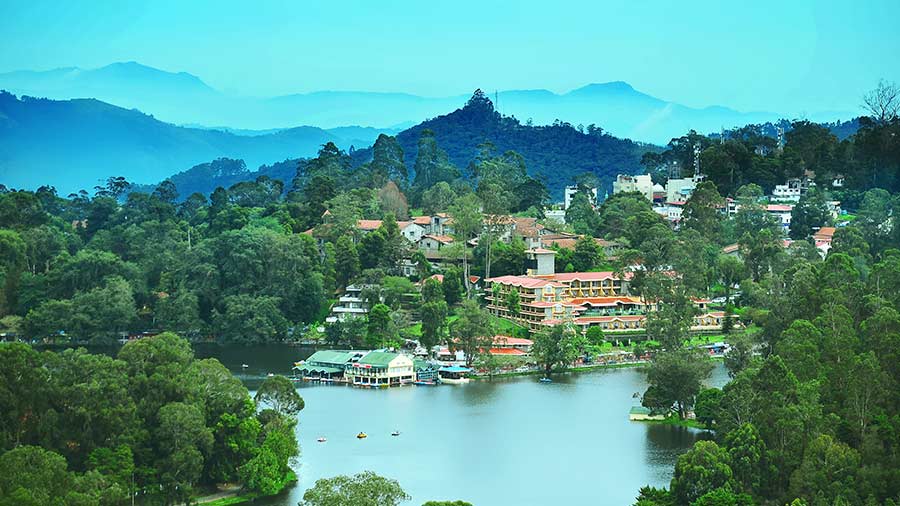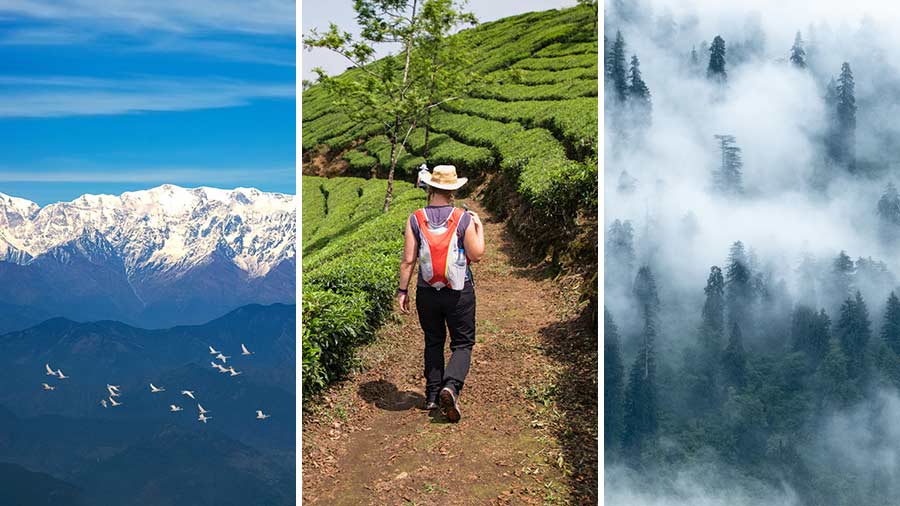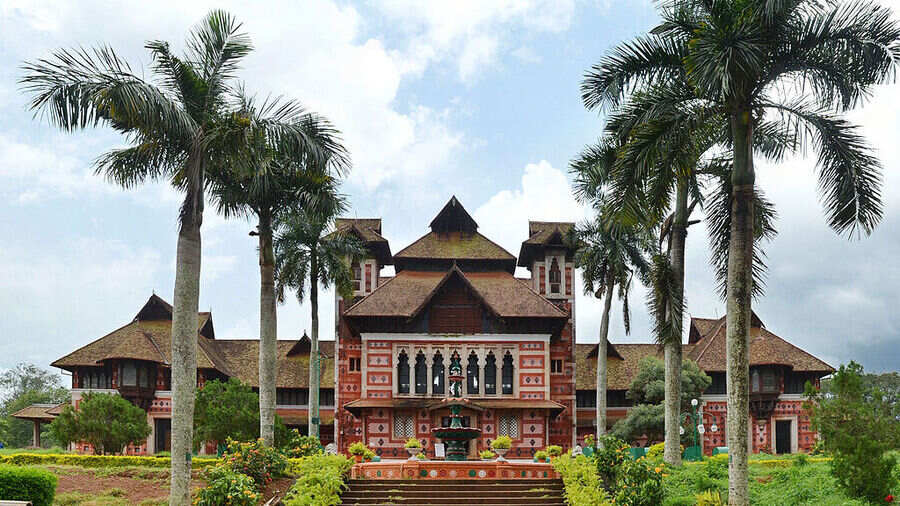Most of my friends and fellow travellers will tell you that I can be an annoying person to travel with. Mostly because I refuse to sit still, fuelled equally by curiosity and FOMO. The latter, because I don’t like missing out on any ‘must-do’ experience at a new destination. There are very few places in the world where I can totally unwind, not race against the clock and not worry about missing a morning alarm. Kodaikanal is one of those rare comfort zones. I’ve lost track of the number of times I’ve visited this idyllic colonial-era hill station in southern Tamil Nadu. I’ve been here to golf, to trek, to explore less explored paths, but most of all, I’ve been here to escape the sweltering heat.
The centre of it all
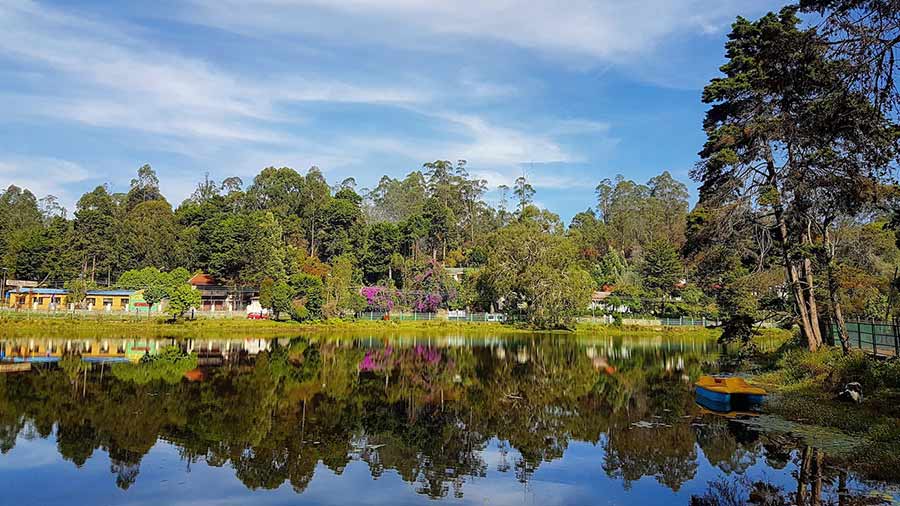
The manmade Kodaikanal Lake dates back to 1863 Ashwin Rajagopalan
Every visitor to Kodaikanal has to pass the Seven Roads junction. This is the heart of Kodaikanal town. Each path leads to a Kodaikanal landmark. There’s the Kodaikanal Lake, arguably the most photographed spot and then the Kodaikanal International School, one of south India’s most hallowed residential schools. I’d recommend reaching the lake just after sunrise, the best time to beat the crowds (it’s best to plan your visit on weekdays during the summer months) and for stunning images with the morning mist. This manmade lake dates back to 1863.
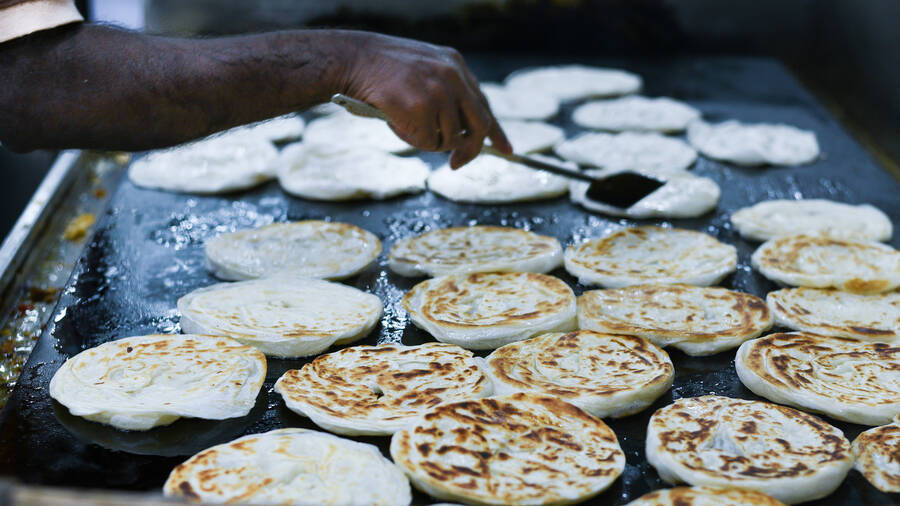
Kerala porottas being made at a street food stall at Kodaikanal Shutterstock
Most of Kodaikanal’s popular dining spots are walking distance from this junction. Ten Degrees offers a terrific selection of international plates – the wasabi prawns and Tres leches cake are both bestsellers. It’s not just the food, this is also one of Kodai’s most cosy restaurants with warm service. Café Cariappa is the perfect anytime option for their artisanal coffees and carrot cake.
A rewarding drive
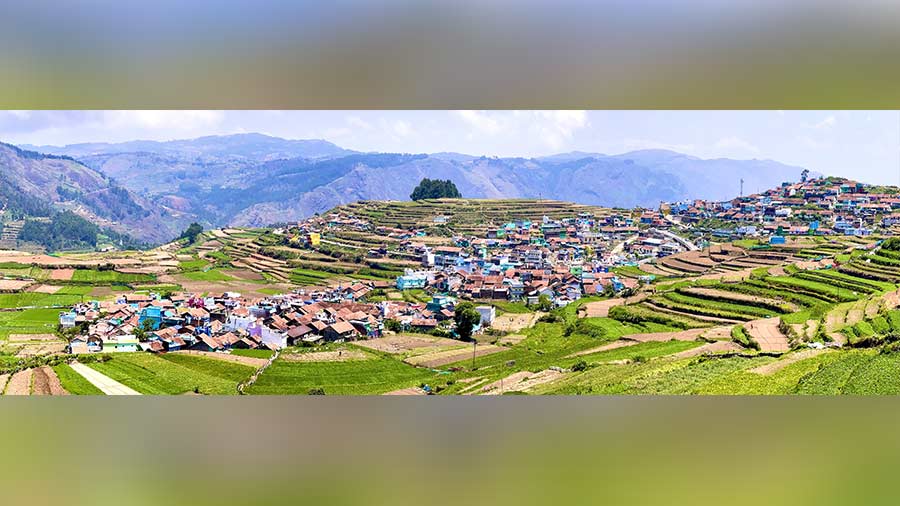
The terraced village of Poombarai, an hour away from Kodaikanal Ashwin Rajagopalan
One of my favourite recent discoveries is Poombarai, a charming village with its terraced landscapes, that’s about an hour away from Kodaikanal town. For long this village was a spot for the faithful, who drove to visit the Kuzhanthai Velappar (Lord Muruga/Karthik), originally believed to have been built by the Chera dynasty. Today, it’s the turn of digital explorers who drive all the way for the perfect panorama shot of Poombarai’s old homes with tiled roofs.
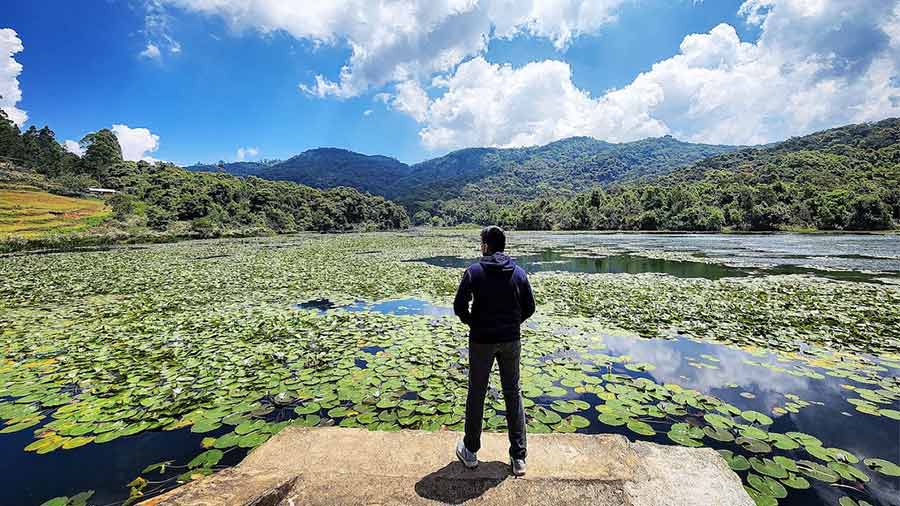
The author at Kookal lake Courtesy Ashwin Rajagopalan
Pasiflora Café that serves authentic, home-style Italian cuisine is one of those vantage points for that panorama shot. Take the scenic loop road past Gundupatti village to reach Kookal lake that’s covered with water lilies. The Kookal falls is a two-hour trek away but only for those who haven’t been cheating on their gym routines. Vattakanal Falls is easier to access and is best known for the iconic Liril commercial. It’s why most locals call it Liril Falls.
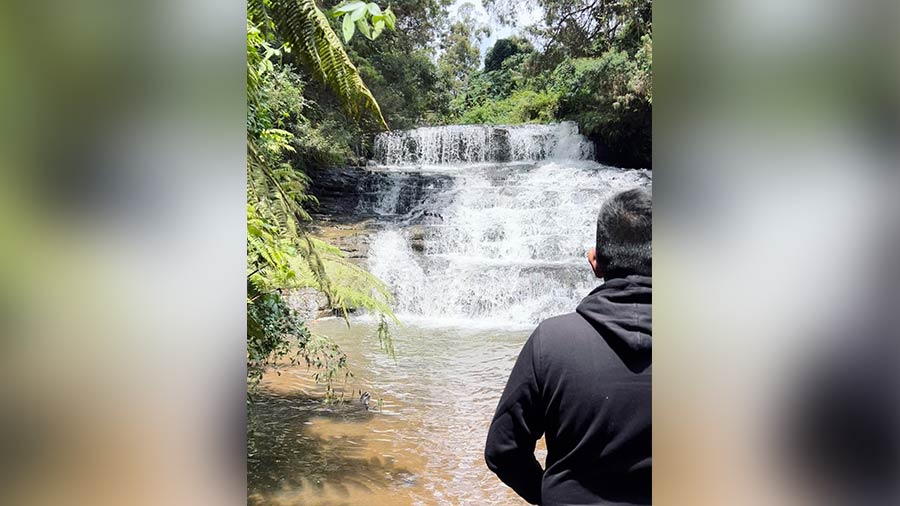
Vattakanal Falls, also called Liril Falls by locals Courtesy Ashwin Rajagopalan
Colonial connection
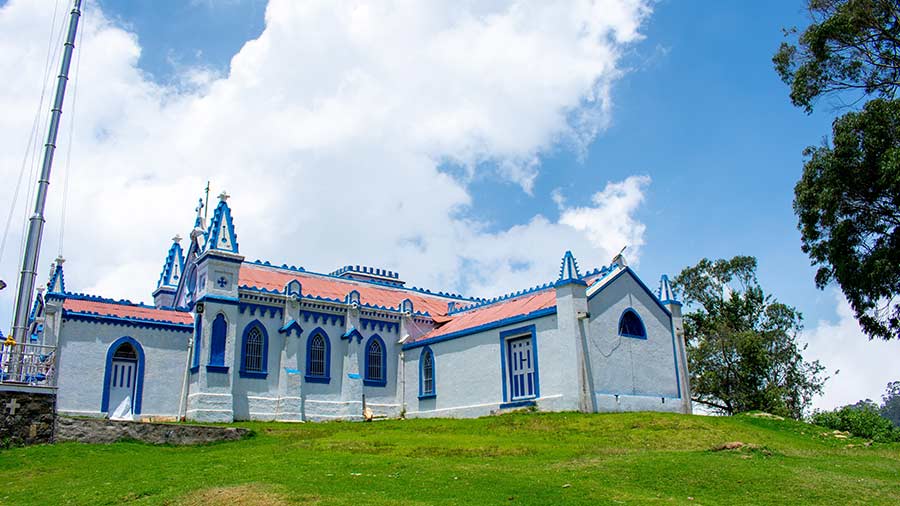
Some of Kodaikanal’s churches are steeped in history, including (above) La Saleth Church Shutterstock
The Kodaikanal Golf Club is one of my favourite courses in India; there are not too many courses in India where I’ve teed off at noon. It was was established in 1895 as a 9-hole course, an ambitious revamp has seen this develop into a picturesque 18-hole course that can offer the occasional thrill – bison sightings are not uncommon along the course’s lush green fairways. The British chose Kodaikanal for its unique location to set up the Kodaikanal Solar Observatory in 1899. It was here that the Evershed Effect was first detected in January 1909. Solar data collected by the lab is the oldest continuous series of its kind in India. Some of Kodaikanal’s churches are steeped in history. La Saleth Church is Kodaikanal’s most historic Catholic Church (since 1866) and a fine example of Tamil architectural excellence.
Bison tales
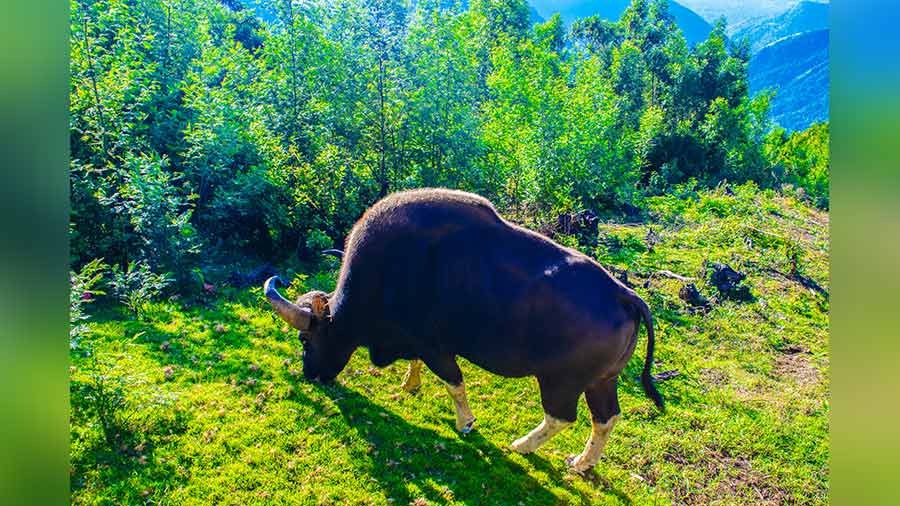
Indian gaur at Mannavanur Shutterstock
Wildlife and outdoor enthusiasts converge at Mannavanur, that is also known as Bison Valley. Trails around this village offer Indian gaur and barking deer sightings. This photogenic village is also home to the Central Sheep and Wool Research Institute’s Sheep Research Centre that overlooks the Mannavanur lake. The other spot for wild bison is Berijam lake and forest – you need to secure an entry permit, that most hotels can organise. It’s a beautiful drive (open until 3 pm) that culminates at the pristine Berijam Lake. One of the many spots that adds to Kodaikanal’s appeal as an accessible and affordable getaway to beat the heat this summer.
